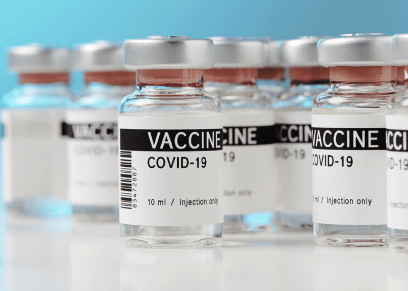A consultant on African Vaccine Manufacturing Initiative (AVMI), Dr. Alexander Ochem has expressed his displeasure over the poor investment in research and development which has continued to stifled sustainable development across Africa.
Ochem stated this at the just concluded 7th African Conference on One Health and Biosecurity held at Civil Centre, Lagos.
According to Ochem, despite the abundant human and natural resources on the African continent, African countries continue to depend heavily on foreign funding for research and development for its problems.
He called on African countries to invest in Research and Development in order to take the African continent to the next level, adding that African countries should take charge of its own destiny by investing in research which is tied to development.
Ochem who spoke on the topic: The Role of African Government and Indigenous Manufacturers in Vaccine R&D’ made specific reference to the outbreak of Ebola and the present Covid-19 pandemic in which Africa is relying heavily on foreign donors for vaccines such as Astrazeneca, Johnson and Johnson, and others.
On the development of vaccines in Africa, he stated that it is wrong for the UK and European countries to develop vaccines for malaria since they are not the ones affected by the disease.
He lamented the poor amount allocated to research and development, stating that, “while other regions of the world have gone ahead in biotechnology, Nigeria was still thinking how and if we are going to do biotechnology or not. This is why we are where we are because we do not have funding for our research and how can we move forward if we don’t have that.”
Ochem further said Africa should not be amazed if countries such as the US, China and Japan continue to record a breakthrough in science as our minimal spending restricts our capabilities, hence we cannot move forward.
Presenting a 12 point development agenda, Ochem insisted that until Africa starts taking responsibility for its development according to its own internal terms and developmental needs, it would continue to be a paper giant and remain backward in the global development affairs.
In her words, The Executive Director of Centre for 21st Century Issues, Titilope Akosa stated that community awareness continues to be the tool deployed to reach remote neighbourhoods who are unaware of the pandemic.
Akosa in her presentation on the Role of Civil Society Organizations (CSO’s) in the fight against Covid-19 in Lagos State said community awareness was employed to dispel the spread of wrong information about the disease as well as the vaccines.
She also informed the gathering on how civil society organizations filled in the gap in the absence of government in addressing the adverse effects of Covid-19 on the populace through interventions in terms of donations of materials to mitigate the problem.
Akosa noted that apart from public-private partnership, there should be more public-public partnership as this would immensely benefit the people, adding that this is the government partnering with communities to deliver the needed services.
Also, The Executive Director, African Technology Policy Studies Network, Dr. Nicholas Ozor, in his presentation titled ‘Developing Effective Policies for Tackling Adverse Effect of Climate Change on the Health Sector in Africa’ called for the regulation of the use of fossil fuels, implementation of environmental compliance laws, promotion of climate smart agricultural practices and importantly, investment in research and development among others as the panacea for effective policies for tackling the adverse effects of climate change.

